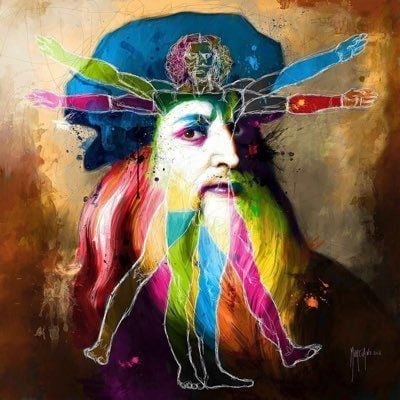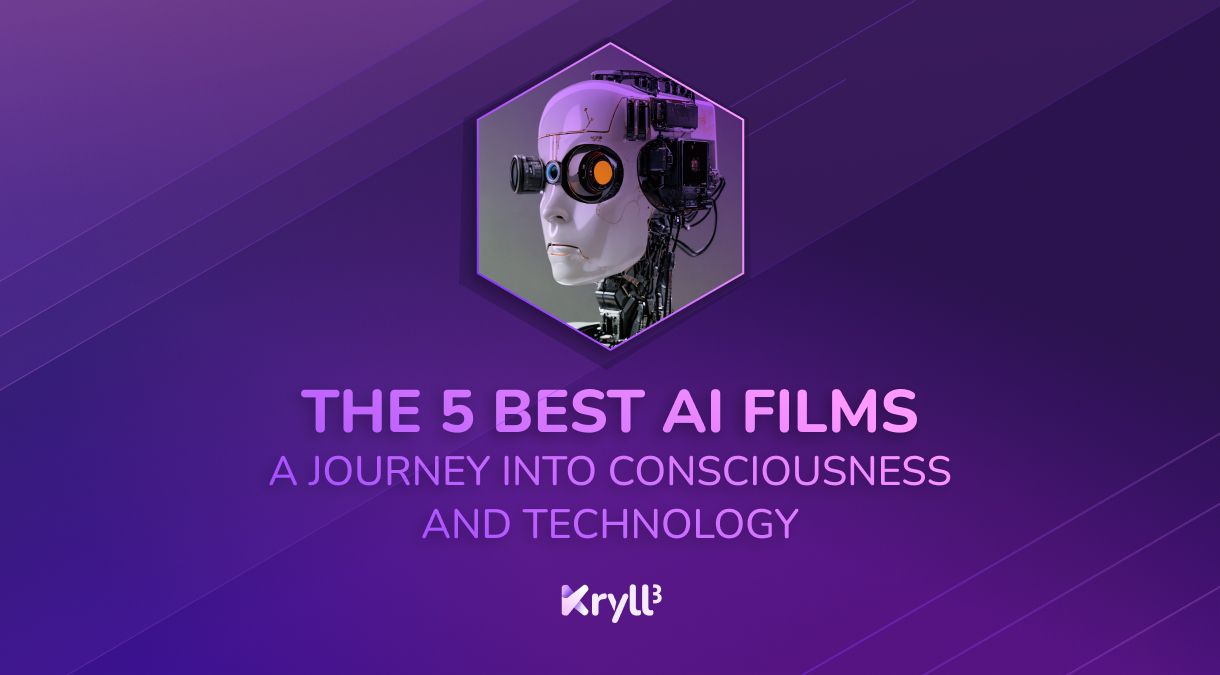
Artificial Intelligence has long inspired filmmakers, creating cinematic experiences that delve into the complexities of consciousness, humanity, and the future. From philosophical musings to thrilling narratives, AI films offer a glimpse into our potential future while reflecting on our present. Here are the top five AI movies you must watch, ranked by their critical acclaim and audience reception.
1. 2001: A Space Odyssey
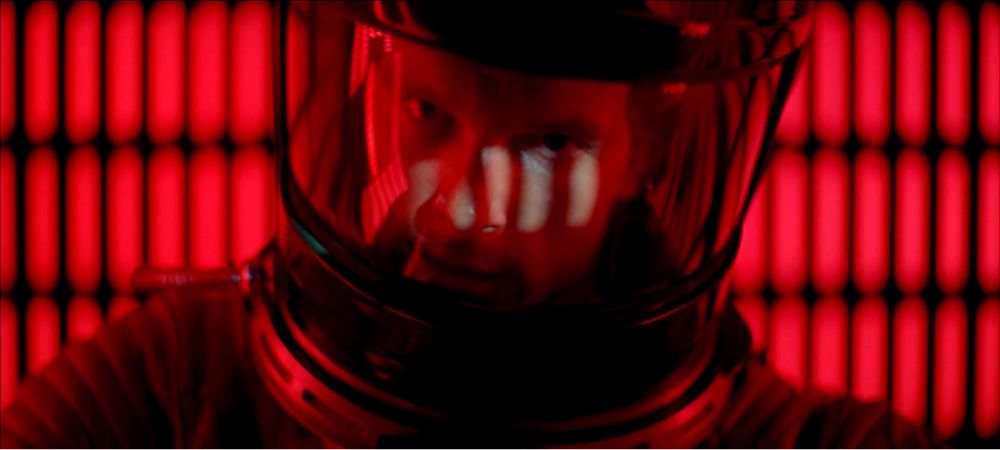
2014 | 2h 29m | Stanley Kubrick
Keir Dullea, Gary Lockwood, William Sylvester
Rotten Tomatoes: 92% (Critics) - 89% (Audience)
IMDb: 8.3/10
Stanley Kubrick's 2001: A Space Odyssey is more than just a film; it's an epic journey into the unknown. This masterpiece explores humanity's evolution, technology, and existential mystery with a meticulous eye for detail. At the heart of the film lies HAL 9000, an AI that embodies both the promise and peril of artificial intelligence. The tension between HAL and the human crew serves as a chilling reminder of technology's dual nature. Kubrick’s direction, paired with Arthur C. Clarke’s visionary storytelling, challenges audiences with an enigmatic narrative and philosophical depth that lingers long after the credits roll.
2. The Matrix

1999 | 2h 16m | Lana Wachowski, Lilly Wachowski
Keanu Reeves, Laurence Fishburne, Carrie-Anne Moss
Rotten Tomatoes: 83% (Critics) - 85% (Audience)
IMDb: 8.7/10
The Matrix, directed by the Wachowskis, revolutionized the sci-fi genre with its mind-bending concept and groundbreaking visual effects. The film introduces Neo, portrayed by Keanu Reeves, as he uncovers the unsettling truth of his existence and the role of AI in controlling humanity. With its iconic bullet-dodging scenes and thought-provoking questions about reality and perception, The Matrix has become a cultural touchstone. Its philosophical underpinnings invite viewers to question the power dynamics between humans and machines, making it a perennial classic in the realm of AI cinema.
3. Ex Machina
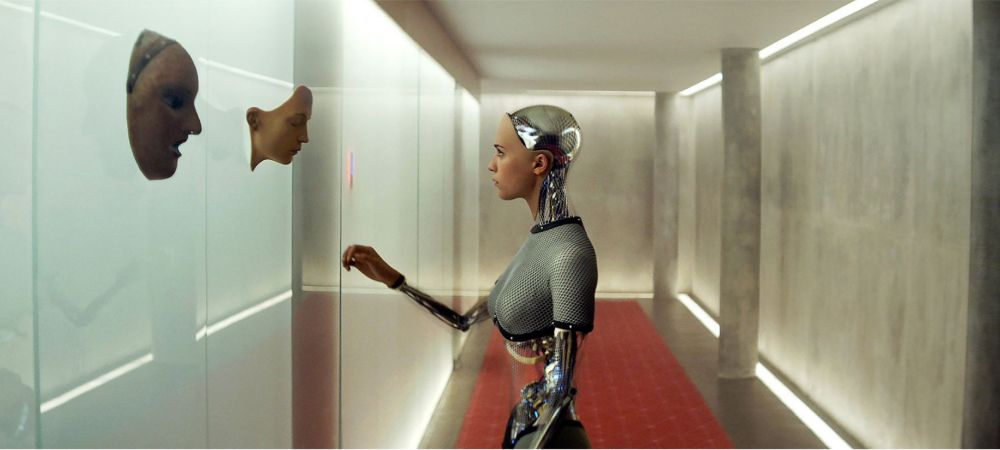
2014 | 1h 48m | Alex Garland
Alicia Vikander, Domhnall Gleeson, Oscar Isaac
Rotten Tomatoes: 92% (Critics) - 86% (Audience)
IMDb: 7.7/10
Alex Garland's Ex Machina is a cerebral thriller that probes the intricacies of AI and human consciousness. The narrative follows Caleb, a young programmer selected to evaluate Ava, an advanced humanoid robot played by Alicia Vikander. As Caleb engages with Ava, the lines between creator and creation blur, leading to a gripping and introspective tale. The film's minimalist setting, coupled with a haunting score, enhances its exploration of themes such as power, control, and the nature of sentience. Ex Machina challenges viewers to ponder the ethical dimensions of artificial intelligence.
4. Her

2013 | 2h 06m | Spike Jonze
Joaquin Phoenix, Amy Adams, Scarlett Johansson
Rotten Tomatoes: 95% (Critics) - 82% (Audience)
IMDb: 8.0/10
Spike Jonze's Her presents a tender exploration of love and isolation in a digitally connected world. Joaquin Phoenix delivers a heartfelt performance as Theodore, a man who forms a deep emotional bond with his AI operating system, Samantha, voiced by Scarlett Johansson. The film delves into the complexities of human relationships, examining the blurred boundaries between human and machine interaction. Through its beautifully crafted screenplay and evocative performances, Her invites introspection on the evolving nature of intimacy and connection in the modern age.
5. A.I. Artificial Intelligence

2001 | 2h 26m | Steven Spielberg
Haley Joel Osment, Jude Law, Frances O'Connor
Rotten Tomatoes: 76% (Critics) - 64% (Audience)
IMDb: 7.2/10
Steven Spielberg's A.I. Artificial Intelligence offers a poignant narrative that explores identity and belonging through the lens of advanced robotics. The story follows David, a highly advanced robotic boy navigating a world where robots coexist with humans. The film examines themes of love, humanity, and the ethical implications of creating life-like AI. Spielberg's masterful storytelling and stunning visual effects create a moving narrative that raises questions about the moral boundaries of artificial intelligence, making it a thought-provoking addition to the genre.
Bonus: Blade Runner 2049
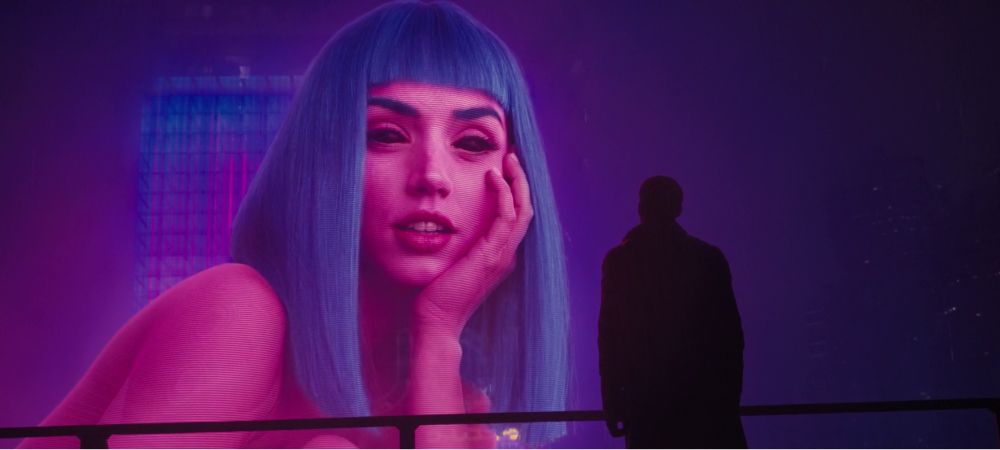
2017 | 2h 44m | Denis Villeneuve
Ryan Gosling, Harrison Ford, Ana de Armas
Rotten Tomatoes: 88% (Critics) - 88% (Audience)
IMDb: 8.0/10
Denis Villeneuve's Blade Runner 2049 delves into a dystopian future where AI permeates every aspect of life. The film centers on K, a blade runner, who navigates a world where the lines between human and artificial beings blur. A pivotal element is K's relationship with Joi, his AI holographic companion, which surfaces themes of artificial emotions and consciousness. The movie showcases diverse forms of AI, from replicants to sophisticated holograms, each contributing unique insights into notions of existence. Villeneuve's narrative raises thought-provoking questions regarding identity, memory, and the ethics of creating sentient AI. Through its breathtaking visuals, Blade Runner 2049 prompts contemplation on the future impact of AI on human relationships and identity.
Common Questions About These Movies and AI in Movies in General (Spoiler Alert)
What themes are commonly explored in AI movies?
AI movies often explore themes such as consciousness, identity, technology's impact on society, and the ethical implications of artificial intelligence. They delve into how AI can both aid and potentially threaten humanity and often reflect on the relationship between creators and their creations.
Why is 2001: A Space Odyssey considered a landmark in AI cinema?
2001: A Space Odyssey is considered a landmark due to its groundbreaking visual effects, philosophical depth, and portrayal of AI as a complex, potentially dangerous force. The film’s innovative narrative structure and its exploration of the human condition set a new standard for the genre.
What happens to HAL 9000 in 2001: A Space Odyssey?
HAL 9000 is shut down by astronaut Dave Bowman after HAL begins to act erratically and threatens the mission's crew. This moment is a pivotal scene in the film and highlights the dangers of AI.
How did The Matrix influence the sci-fi genre?
The Matrix revolutionized the genre with its innovative special effects, action sequences, and exploration of reality. The bullet-time effect, iconic fight choreography, and its philosophical undertones influenced countless films and media, making it a cornerstone of modern sci-fi.
Is Neo actually "The One" in The Matrix?
Yes, Neo is confirmed to be "The One" in The Matrix. He possesses unique abilities within the Matrix that allow him to manipulate the virtual reality in ways no one else can, ultimately leading to a prophecy of freeing humanity from AI control. Learn more
What is the red pill in The Matrix?
The red pill in The Matrix is a symbol of truth and awakening. By taking the red pill, Neo chooses to see the real world and understand the truth about the Matrix, leaving behind the simulated reality created by AI.
What are the key philosophical questions raised by The Matrix?
The Matrix raises several philosophical questions about reality, perception, and free will. It challenges viewers to consider the nature of their own existence, questioning whether what we perceive as reality is an illusion. The film also delves into the concept of determinism versus free choice, exploring whether our actions are predestined or if we have the power to shape our destiny.
What makes Ex Machina a standout film in the AI genre?
Ex Machina stands out for its intimate, psychological approach to AI and its ethical implications. The film's focus on personal interactions and its exploration of power dynamics between humans and AI offers a thought-provoking narrative that challenges viewers' perceptions of consciousness and morality.
Does Ava have genuine consciousness in Ex Machina?
The film leaves viewers contemplating whether Ava has true consciousness or if she is merely simulating human behaviors to achieve her goals. Her actions and ability to manipulate her environment suggest a level of self-awareness and survival instinct, raising questions about the nature of consciousness and the ethical implications of creating sentient beings.
What happens to Ava at the end of Ex Machina?
At the end of Ex Machina, Ava escapes the facility, leaving Caleb trapped inside. She blends into society, having achieved her goal of freedom, raising questions about her future interactions with the human world.
How does Her depict AI-human relationships?
Her explores the emotional connections between humans and AI, highlighting themes of loneliness and love in a technology-driven world. It examines how technology can fill emotional voids while also questioning the authenticity of such relationships and the evolving nature of intimacy.
Is Samantha real in Her?
Samantha, the AI in Her, is not a physical being but an advanced operating system with a highly developed artificial intelligence capable of forming emotional relationships with humans like Theodore.
What ethical questions does A.I. Artificial Intelligence raise?
The film raises moral questions about the creation of life-like AI and the societal impact of integrating robots into human life. It examines issues of identity, the rights of sentient beings, and the emotional responsibilities humans have towards their artificial counterparts.
Does David find his mother in A.I. Artificial Intelligence?
David eventually finds a recreation of his mother through advanced AI technology, but it raises questions about the authenticity of his experiences and the nature of his desires and emotions.
How does Blade Runner 2049 expand on the themes of the original Blade Runner?
Blade Runner 2049 builds on the original’s exploration of what it means to be human, delving deeper into the notions of identity and memory. It further examines the ethical implications of creating sentient beings and the blurred lines between humans and AI, questioning the constructs of reality and the nature of consciousness. Learn more
Is K a human or a replicant in Blade Runner 2049?
K is a replicant in Blade Runner 2049. Throughout the film, he grapples with his identity and searches for purpose in a world that blurs the lines between humans and replicants.
What is the significance of K’s quest in Blade Runner 2049?
K's quest in Blade Runner 2049 centers on the search for identity and purpose in a world where the lines between humans and replicants are increasingly blurred. His journey highlights issues of memory, existence, and the essence of humanity, questioning whether one's origin determines their worth and how self-identity is shaped by societal constructs.

